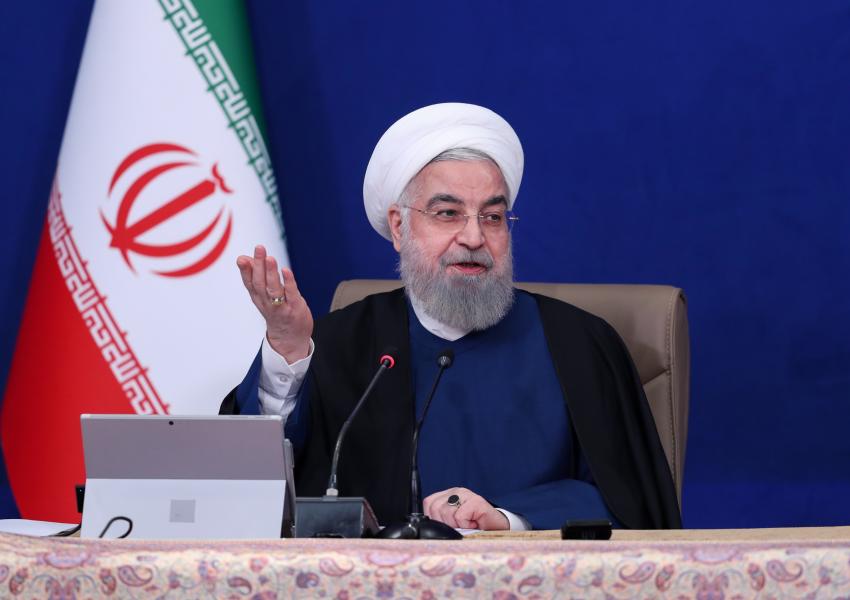
Rouhani Calls 60% Enrichment 'Answer To Evil-Doing', Lashes Out At Opponents Of Vienna Talks
President Hassan Rouhani Wednesday [April 14] said Iran had responded to Sunday’s attack on Iran’s Natanz nuclear facility with its decision to begin enriching uranium to 60 percent, announced Tuesday by Deputy Foreign Minister Abbas Araghchi, and to use relatively advanced IR-6 centrifuges.
While lambasting the “evil-doing” of Israel, widely blamed for Sunday’s explosion, Rouhani also lashed out at domestic opponents who he said feared current talks in Vienna aimed at reviving Iran’s 2015 nuclear agreement with world powers.
Speaking at a cabinet meeting, Rouhani said Israel had tried to undermine the negotiations by the attack, which centered on Natanz’s power supply. “You wanted to empty our hands in the talks in Vienna, but our hands are full,” he said. “We cut both your hands, one with the IR-6 centrifuges and the other with 60 percent enrichment."
By its response, Iran has risked alienating other members of the 2015 deal, the JCPOA (Joint Comprehensive Plan of Action), especially the Europeans but potentially also Russia and China. France said on Tuesday it was working to coordinating a strategy with world powers, including the United States, to keep talks on track. The French presidency said the Iranian announcement over 60 percent enrichment was a "serious" development.
But Rouhani’s focus was also on domestic politics. He charged that critics of the JCPOA in Iran were alarmed at the prospect of agreement in Vienna that would revive the 2015 deal and lift punitive US secondary sanctions introduced by President Donald Trump after leaving the nuclear agreement in 2018.
Rouhani suggested that criticisms of the Vienna talks, and calls by some for Iran to leave the talks, reflected fears among principlists that a breakthrough in Vienna would benefit a centrist, pro-JCPOA candidate in June’s presidential election.
"No faction or person has the right to take people's lives and subsistence hostage for the sake of the elections,” Rouhani said. “Lifting of sanctions will be beneficial to the elections and people's participation in election.”
Rouhani himself is ineligible to stand for a third consecutive term in June's elections but there has long been speculation that Foreign Minister Mohammad Javad Zarif, a Rouhani ally and a central figure in negotiating the JCPOA, may run. Zarif on Monday reiterated that he remained determined not to stand but also expressed concern that “pressures, harassments, accusations and threats” – a reference to criticisms of the government, especially over its commitment to the JCPOA - might disillusion voters.
Zarif suggested in November that some principlists were making overtures to the US to convince that a new, more conservative administration after June would be more amenable than Rouhani. Across the political class, a high turnout in elections is seen as desirable, and concern was widely expressed at the low 43.57 percent turnout in the February 2020 parliamentary election.




